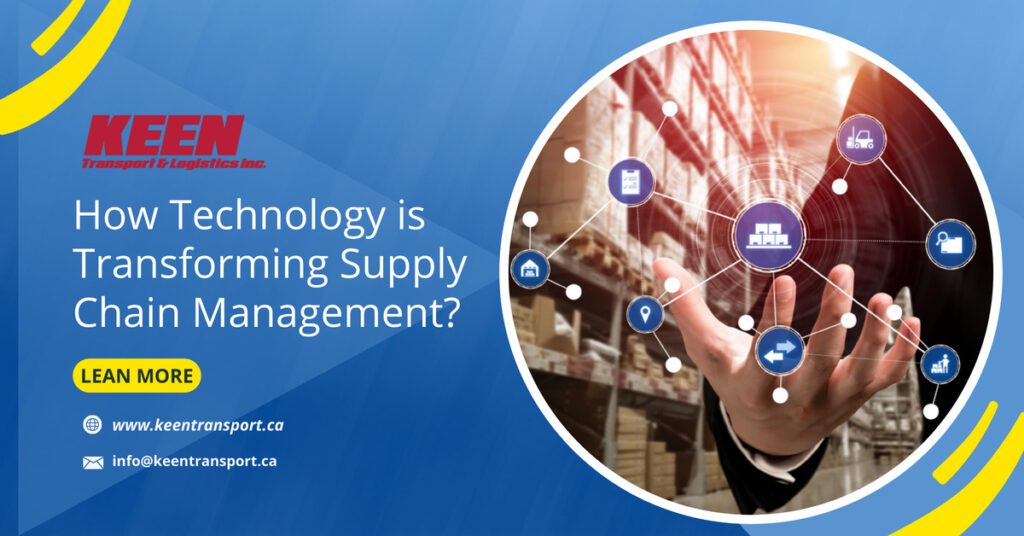In the dynamic landscape of modern business, technology is a powerful catalyst reshaping every aspect of supply chain management services. From procurement to delivery, innovative technological advancements are revolutionizing how logistics companies and transportation services operate. This blog delves into the transformative impact of technology on supply chain management and explores how these changes are driving efficiency, accuracy, and customer satisfaction.
The Technological Revolution in Supply Chain Management Services
1. Automation and Robotics
Automation is at the forefront of the technological revolution in supply chain management. Automated systems and robotics are being used to streamline various processes, including:
- Warehousing: Automated guided vehicles (AGVs) and robotic arms enhance warehouse operations by moving goods efficiently and reducing the need for manual labor.
- Order Fulfillment: Automation in order processing ensures accuracy and speed, reducing human error and enhancing customer satisfaction.
2. Internet of Things (IoT)
The Internet of Things (IoT) plays a crucial role in providing real-time visibility across the supply chain. IoT devices and sensors collect and transmit data, enabling logistics companies to:
- Track Shipments: Real-time tracking of goods from production to delivery ensures transparency and allows for proactive management of potential issues.
- Monitor Conditions: Sensors can monitor environmental conditions, such as temperature and humidity, ensuring the integrity of sensitive products during transportation.
3. Artificial Intelligence (AI) and Machine Learning
AI and machine learning algorithms are transforming supply chain management by providing predictive insights and enhancing decision-making processes. Key applications include:
- Demand Forecasting: AI-powered analytics predict demand patterns, allowing for better inventory management and reduced stockouts or overstock situations.
- Route Optimization: Machine learning algorithms analyze traffic patterns and other variables to determine the most efficient transportation routes, reducing delivery times and costs.
4. Blockchain Technology
Blockchain technology offers a secure and transparent way to manage and verify transactions within the supply chain. Its benefits include:
- Enhanced Security: Blockchain’s decentralized nature ensures data integrity and prevents tampering, making it ideal for tracking goods and verifying authenticity.
- Transparency: All stakeholders in the supply chain can access and verify transaction records, fostering trust and collaboration.
Transforming Logistics and Transportation Services
The integration of advanced technologies in logistics and transportation services is revolutionizing how goods are moved and managed. Here’s how:
1. Autonomous Vehicles and Drones
Autonomous vehicles and drones are poised to revolutionize transportation services by:
- Reducing Labor Costs: Autonomous trucks and delivery drones minimize the need for human drivers, reducing labor costs and mitigating driver shortages.
- Improving Efficiency: These technologies can operate around the clock, increasing delivery speed and reducing downtime.
2. Advanced Transportation Management Systems (TMS)
Transportation management systems (TMS) leverage technology to optimize the planning, execution, and tracking of transportation activities. Benefits include:
- Route Planning: TMS uses real-time data to plan efficient routes, reducing fuel consumption and delivery times.
- Carrier Management: TMS platforms facilitate better collaboration with carriers, ensuring timely and cost-effective transportation services.
The Future of Supply Chain Management Services
As technology continues to evolve, the future of supply chain management services looks promising. Emerging trends include:
- Augmented Reality (AR): AR can enhance warehouse operations by providing workers with real-time information and instructions, increasing accuracy and efficiency.
- 5G Connectivity: The rollout of 5G networks will enhance IoT device connectivity, enabling faster data transmission and more reliable real-time tracking.
Conclusion
The integration of technology into supply chain management services is transforming how logistics companies and transportation services operate. Automation, IoT, AI, blockchain, and other innovations are driving efficiencies, enhancing accuracy, and improving customer satisfaction. As these technologies continue to advance, the supply chain landscape will become even more dynamic, efficient, and responsive to the ever-changing demands of the global market.

